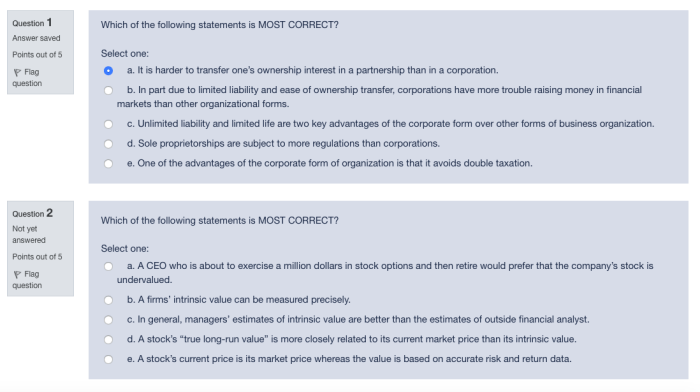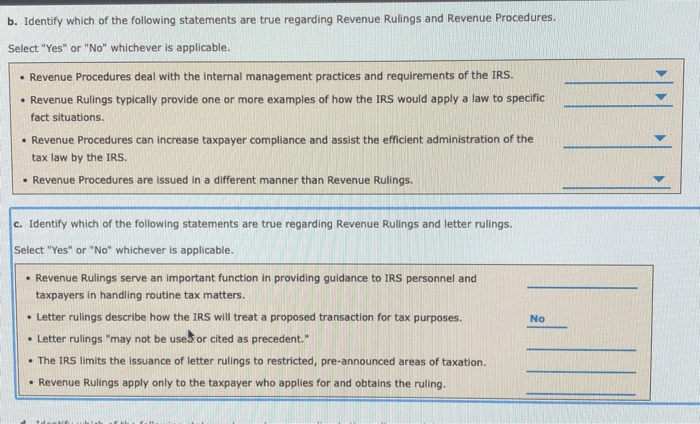Which of the following statements is true regarding customer data? This question opens up a vast and complex landscape of data collection, analysis, and ethical considerations that businesses must navigate in today’s digital age. Understanding the nuances of customer data is paramount for organizations seeking to build lasting relationships, optimize marketing strategies, and drive business growth.
Customer data encompasses a wide range of information businesses collect about their customers, including demographics, purchase history, browsing behavior, and preferences. This data provides valuable insights into customer needs, preferences, and behaviors, enabling businesses to tailor their products, services, and marketing campaigns accordingly.
However, the collection and use of customer data also raise important ethical and privacy concerns that businesses must address responsibly.
Customer Data Types

Businesses collect various types of customer data to gain insights into their customers’ behavior, preferences, and needs. These data can be categorized into the following types:
Personal Data
- Name
- Address
- Phone number
- Email address
- Social media profiles
Transactional Data
- Purchase history
- Order details
- Payment information
- Customer service interactions
- Website browsing behavior
Behavioral Data
- Website browsing history
- Social media interactions
- Mobile app usage
- Email engagement
- Customer reviews
Attitudinal Data
- Customer surveys
- Focus groups
- Customer interviews
- Social media sentiment analysis
- Online reviews
Customer Data Collection Methods
Businesses use various methods to collect customer data, including:
Surveys
Surveys are a common method for collecting customer feedback and insights. They can be conducted online, via email, or in person.
Focus Groups
Focus groups involve gathering a small group of customers to discuss a specific topic or product. They provide in-depth insights into customer perspectives.
Customer Interviews
Customer interviews are one-on-one conversations with customers to gather detailed feedback and understand their needs.
Website Tracking
Website tracking tools, such as Google Analytics, collect data on website visitors’ behavior, such as pages visited, time spent on site, and conversion rates.
Social Media Monitoring
Social media monitoring tools track customer interactions on social media platforms, providing insights into brand sentiment and customer preferences.
Customer Data Storage and Management

Businesses use various methods to store and manage customer data, including:
Customer Relationship Management (CRM) Systems
CRM systems are software applications that centralize customer data and provide a single view of customer interactions.
Data Warehouses
Data warehouses are central repositories for large volumes of structured data, including customer data.
Data Lakes
Data lakes are repositories for both structured and unstructured data, including customer data.
Security Measures for Customer Data
Businesses must implement robust security measures to protect customer data from unauthorized access, theft, and misuse. These measures include:
- Encryption
- Access controls
- Data backup and recovery
- Security audits
- Compliance with data privacy regulations
Customer Data Analysis and Use

Businesses use various methods to analyze and use customer data, including:
Data Mining
Data mining is the process of extracting patterns and insights from large datasets, including customer data.
Statistical Analysis
Statistical analysis is used to identify trends, correlations, and other patterns in customer data.
Predictive Modeling
Predictive modeling uses historical data to predict future customer behavior, such as purchase likelihood or churn risk.
Benefits of Using Customer Data for Businesses
- Improved customer segmentation and targeting
- Personalized marketing campaigns
- Enhanced customer service
- Product and service innovation
- Increased customer loyalty
Customer Data Privacy and Ethics: Which Of The Following Statements Is True Regarding Customer Data
The collection and use of customer data raise important privacy and ethical concerns, including:
Privacy Breaches
Privacy breaches occur when customer data is accessed, used, or disclosed without their consent.
Data Security Risks
Data security risks include unauthorized access to customer data, data breaches, and data loss.
Regulations and Best Practices for Customer Privacy, Which of the following statements is true regarding customer data
Businesses must comply with data privacy regulations, such as the General Data Protection Regulation (GDPR) and the California Consumer Privacy Act (CCPA). Best practices include:
- Transparency about data collection and use
- Customer consent for data collection
- Data minimization
- Data security measures
- Compliance with data privacy regulations
FAQ Insights
What are the different types of customer data?
Customer data can be categorized into several types, including demographic data (e.g., age, gender, location), behavioral data (e.g., purchase history, browsing behavior), and psychographic data (e.g., values, beliefs, lifestyle).
How do businesses collect customer data?
Businesses use various methods to collect customer data, such as surveys, website tracking, social media monitoring, and loyalty programs.
What are the benefits of using customer data?
Customer data provides valuable insights into customer needs, preferences, and behaviors, enabling businesses to improve their products, services, and marketing campaigns.
What are the ethical concerns surrounding the use of customer data?
The collection and use of customer data raise important ethical concerns, such as privacy breaches, data misuse, and discrimination.